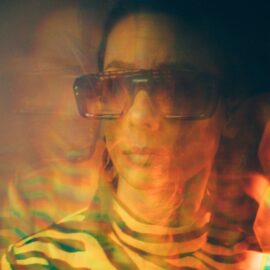
What does it take to have breakthrough ideas and moments of clarity? How can we train ourselves to welcome the unexpected insights that lead to innovation rather than resisting them?
In his book Seeing What Others Don’t, Gary Klein reveals that developing an insight mindset begins with embracing uncertainty. His research shows that the most innovative thinkers approach problems with curiosity and openness, viewing contradictions as valuable learning opportunities.
Keep reading to discover how developing an insight mindset can transform your life and work.
An Insight Mindset
The first step in Klein’s method for cultivating the right conditions for insight is counterintuitive: Instead of trying to be right all the time, we need to get comfortable with being wrong. Klein’s research shows that people who have more breakthrough ideas have an insight mindset, approaching their work with a willingness to question their own expertise and welcome information that challenges their beliefs. They view contradictions not as threats but as learning opportunities, maintaining curiosity about things that don’t quite fit their understanding.
| How Doubt Shapes the Scientific Method While Klein presents embracing uncertainty as a personal practice, this principle represents one of humanity’s most transformative insights: the scientific method itself. When philosopher and scientist René Descartes proposed his method of systematic doubt in the 17th century, arguing that we should question everything we think we know, he was suggesting something radical: that uncertainty wasn’t a weakness to be avoided; it was a tool for discovering truth. This shift from seeking certainty to embracing doubt transformed how humans acquire knowledge. Before, scholars tried to create complete systems explaining everything at once After, they learned to focus on specific questions they could test empirically. Before, contradictions were seen as failures to be explained away. After, contradictions became clues pointing toward new understanding. Before, being uncertain was considered a weakness. After, systematic doubt became the foundation of scientific progress. Embracing uncertainty isn’t just a personal practice but a fundamental principle for how humans make breakthroughs. As philosopher Michael Strevens (The Knowledge Machine) explains, science succeeded because it created a system where researchers had to channel their personal convictions into gathering empirical evidence. In other words, they needed to embrace uncertainty enough to test their beliefs and actively seek out ways they might be wrong, rather than just looking for ways to prove what they believe to be true. |






